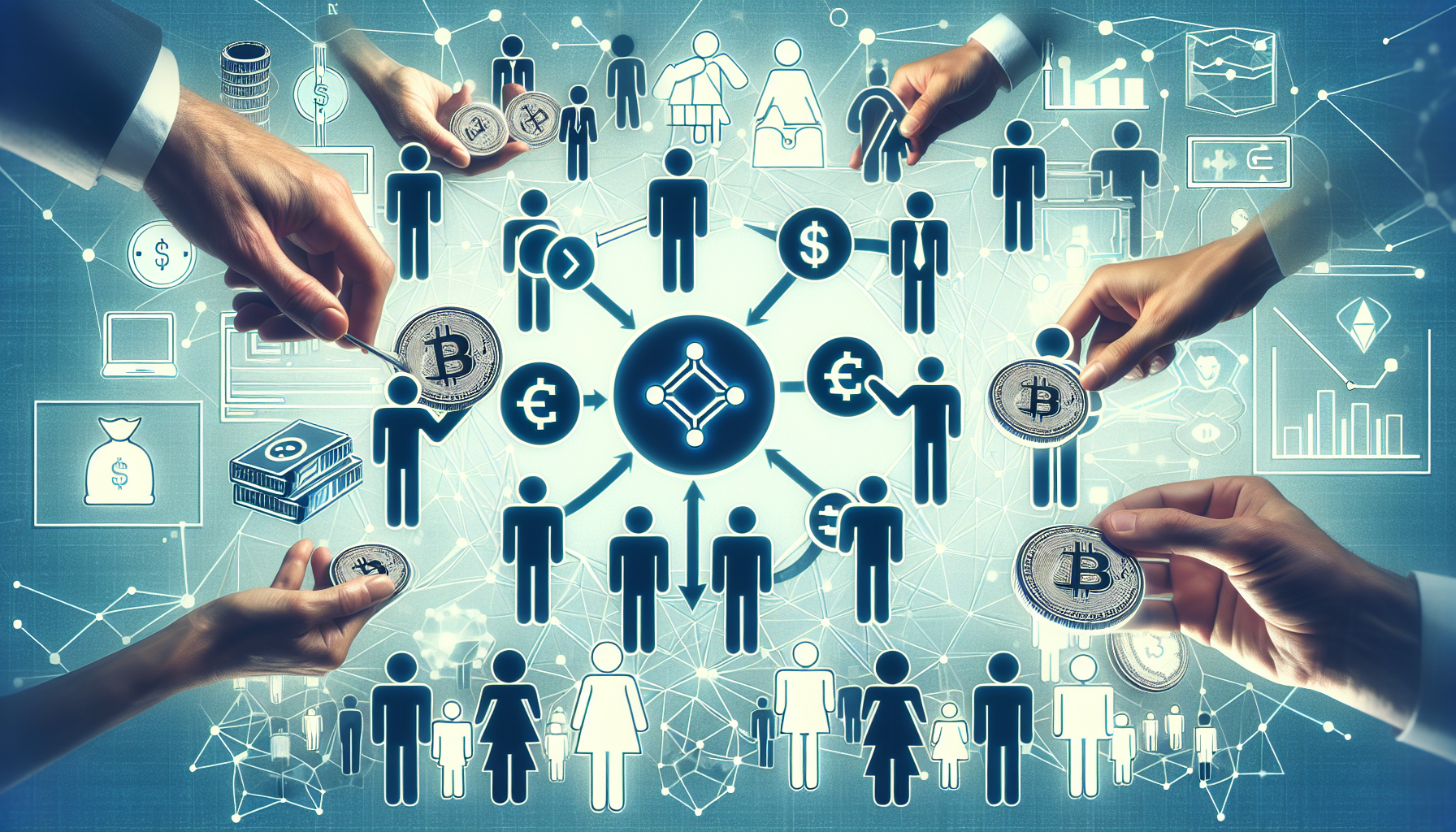Understanding Token Economy
To comprehend the concept of a token economy, it is essential to explore its definition, origin, and underlying principles.
Definition and Origin
According to the Merriam-Webster Medical Dictionary, a token economy is defined as a system in which individuals receive tokens or symbolic reinforcements for exhibiting specific behaviors or achieving predetermined goals. These tokens hold value within the system and can be exchanged for desired rewards or privileges.
The origin of the token economy can be traced back to the field of Applied Behavior Analysis (ABA). It was developed as a behavioral management strategy to encourage and reinforce desired behaviors. Initially, it was implemented in therapeutic environments and later extended to various settings, including schools, digital platforms, and homes [2].
Principles of Token Economy
Token economies are based on the principles of operant conditioning, which emphasizes the strengthening of behaviors through positive reinforcement. The core principles of a token economy include:
- Token as Reinforcement: In a token economy, tokens serve as tangible representations of reinforcement. They are awarded to individuals for displaying desired behaviors or achieving specific goals. These tokens hold value within the system and act as a bridge between the behavior and the ultimate reward or privilege.
- Accumulation and Exchange: Individuals accumulate tokens over time by consistently exhibiting desired behaviors. The tokens can then be exchanged for predetermined rewards or privileges, providing an incentive for continued positive behavior.
- Generalized Reinforcers: In educational settings, token economies often utilize generalized conditioned reinforcers. These tokens can be traded for a variety of items and activities, similar to how money is used in an economy for desired items and activities. This flexibility allows individuals to choose rewards that are personally motivating.
By implementing token economies based on these principles, individuals are motivated to engage in desired behaviors and achieve positive outcomes. From behavior modification programs to classroom management strategies, token economies offer a structured system to reinforce desired behaviors and discourage unwanted behaviors.
Implementing Token Economy
To effectively implement a token economy system, it is essential to consider the different types of tokens and their application in various settings.
Token Types
Tokens used in a token economy system can take various forms, depending on the context and desired outcomes. These tokens serve as tangible representations of reinforcement and can be exchanged for desired items, activities, or privileges. Common types of tokens include:
- Physical Tokens: These are tangible objects such as coins, chips, or stickers that are given to individuals as a reward for desired behaviors. Physical tokens provide a visual representation of progress and can be collected and exchanged for predetermined rewards.
- Digital Tokens: With the advancement of technology, digital tokens have become increasingly popular. These can be in the form of virtual points, stars, or badges, which are tracked electronically. Digital tokens can be stored on devices, apps, or online platforms, making them easily accessible and convenient to use.
- Token Economy Apps: There are also dedicated token economy apps available that allow users to track and manage tokens digitally. These apps often provide features such as customizable token types, tracking progress, and setting goals. They can be particularly useful in educational and therapeutic settings.
Application in Different Settings
Token economies have proven to be effective in various settings, including educational, therapeutic, and home environments. Their flexibility allows for customization based on the specific needs and goals of each setting.
- Educational Settings: Token economies are extensively used in educational settings, particularly in classroom management. Teachers can implement token systems to encourage positive behavior, academic progress, and participation. By rewarding students with tokens for desired behaviors, such as completing assignments, participating in class discussions, or demonstrating cooperation, teachers can reinforce positive behaviors and create a motivating learning environment.
- Therapeutic Settings: Token economies are commonly utilized in therapeutic interventions, such as Applied Behavior Analysis (ABA). In these settings, tokens are used to increase desired behaviors or decrease unwanted behaviors by providing immediate reinforcement [3]. For example, tokens can be given to children for completing academic tasks or exhibiting positive social behaviors, helping to shape and reinforce appropriate behavior.
- Home Environments: Token economies can also be implemented in home environments to encourage positive behaviors and foster a structured routine. Parents can establish a token system where tokens are earned for completing chores, following household rules, or exhibiting respectful behaviors. These tokens can then be exchanged for rewards or privileges, reinforcing positive behaviors and motivating children to contribute to the household.
By understanding the different token types and their applications in various settings, individuals can effectively implement a token economy system to promote desired behaviors, reinforce skills, and create a positive and rewarding environment.
Benefits of Token Economy
Token economy systems offer several benefits, particularly in the realms of behavior modification and skill reinforcement. By understanding these benefits, we can appreciate the effectiveness and versatility of this approach.
Behavior Modification
Token economies are rooted in the principles of operant conditioning, which involve reinforcing desired behaviors through positive reinforcement. In this system, tokens serve as tangible representations of reinforcement, and individuals can accumulate and exchange these tokens for rewards. This structure provides a clear and structured approach to reinforce desired behaviors and discourage unwanted behaviors.
The use of tokens as rewards allows for immediate reinforcement, making it easier to strengthen and shape specific behaviors. Tokens can be tailored to the individual’s preferences and motivate individuals to engage in desired actions. This, in turn, increases the likelihood of consistent and positive behavior change.
Skill Reinforcement
Token economies can also be effectively utilized for skill reinforcement in various settings, including schools, homes, summer camps, and inpatient programs. The flexibility of this approach makes it suitable for reinforcing a wide range of skills, such as academics, communication, self-help, and prosocial behavior.
By using tokens to reinforce skill acquisition, individuals are motivated to engage in and practice these skills. The exchange of tokens for desired rewards creates a meaningful incentive, further enhancing the reinforcement process. This approach can help individuals develop and maintain new skills, ultimately leading to increased independence and success in various aspects of life.
Token economies work on the concept of assigning value to the tokens, much like the world economy, where money represents a token allowing the purchase of desired items [4]. The value of tokens in this system depends on the individual’s perceived effort and the reinforcement they are working towards.
By implementing a token economy system, individuals can benefit from the structure, motivation, and reinforcement it provides. It offers a powerful tool to facilitate behavior modification and skill reinforcement, contributing to positive behavioral outcomes and personal growth.
Challenges of Token Economy
Implementing a token economy system can bring about positive changes in behavior and skill development. However, it is important to be aware of potential challenges that may arise when using this system. Two key challenges are fading rewards and generalization issues.
Fading Rewards
One challenge with the token economy system is the fading of rewards. Initially, tokens are used as external reinforcements to motivate individuals to engage in desired behaviors. Over time, the goal is to fade the use of tokens and transition to internal motivation. However, individuals may become reliant on the token system, making it challenging for them to perform the target behavior once the rewards are removed [5]. This can hinder the development of intrinsic motivation, which is essential for long-term behavior change.
To address this challenge, it is important to gradually reduce the dependence on tokens as individuals become more proficient in the desired behaviors. This process, known as fading, involves gradually decreasing the frequency or magnitude of token rewards while still reinforcing the target behavior. By gradually transitioning from external rewards to internal satisfaction, individuals can develop a sense of intrinsic motivation and independence.
Generalization Issues
Another challenge of the token economy system is the potential for generalization issues. Generalization refers to the ability to apply learned behaviors in different settings and situations. In the context of the token economy, individuals may become overly reliant on tokens and rewards, making it challenging for them to perform expected behaviors in settings where tokens are not used for reinforcement [5]. This can limit the transfer of skills acquired within the token economy system to real-life situations.
To promote generalization, it is important to gradually fade the use of tokens in various settings. This can be achieved by gradually reducing the reliance on tokens and reinforcing the desired behaviors in natural contexts. By providing opportunities for individuals to practice and demonstrate the target behaviors in different settings without relying on tokens, generalization can be encouraged.
It is essential to address these challenges by carefully monitoring and adjusting the token economy system. By gradually fading the rewards and promoting generalization, individuals can develop intrinsic motivation and apply the acquired skills in real-life situations.
Practical Tips for Token Economy
Implementing a token economy system can be an effective way to encourage positive behaviors and reinforce desired skills. To optimize the effectiveness of the token economy, certain practical tips can be followed. This section will explore two key aspects: setting goals and tracking progress.
Setting Goals
Setting clear and achievable goals is crucial when implementing a token economy system. Goals provide a focus for individuals and give them something to work towards. When establishing goals within a token economy, consider the following:
- Specificity: Goals should be specific, clearly defining the desired behavior or skill to be achieved. For example, instead of setting a goal like “behave well,” a more specific goal could be “raise hand before speaking in class.”
- Relevance: Goals should be relevant to the individual or group. Tailor goals to address specific behaviors or skills that need improvement or reinforcement.
- Attainability: Ensure that goals are realistically attainable. Setting overly difficult goals may lead to frustration and discouragement, while setting easily achievable goals may not provide enough challenge. Find the right balance based on the individual’s capabilities.
- Timeframe: Set a timeframe for achieving goals. This can vary depending on the behavior or skill being targeted. Short-term goals can be daily or weekly, while long-term goals may span several weeks or months.
By setting goals that are specific, relevant, attainable, and time-bound, individuals are more likely to engage and actively work towards earning tokens.
Tracking Progress
Tracking progress is an essential part of a token economy system. It allows individuals to see their growth and provides a visual representation of their accomplishments. Consider the following tips for tracking progress effectively:
- Token Containers: Utilize designated containers to hold the earned tokens. This not only keeps the tokens organized but also serves as a visual representation of progress. Choose a container that is easily accessible to the individual, yet secure enough to prevent disputes over the number of tokens earned.
- Written Record: Maintain a written record of the tokens earned. This record can be kept by a parent, teacher, or the individual themselves. It provides a concrete record of progress and helps track patterns or trends over time.
- Fairness: When implementing a token economy system with multiple participants, ensure fairness by setting different behavioral goals for each individual. Additionally, consider offering rewards that are appealing to each person involved. This can foster healthy competition between siblings or collective rewards for achieving specific goals.
By effectively tracking progress, individuals can see their achievements and feel motivated to continue working towards their goals. The visual representation of progress serves as a reminder of the positive behaviors or skills they have developed.
Implementing practical tips like setting goals and tracking progress can enhance the effectiveness of a token economy system. By providing clear objectives and visualizing progress, individuals are encouraged to actively engage in the desired behaviors or skills, further reinforcing the benefits of the token economy approach.
Token Economy in Education
Token economies are widely implemented in educational settings, particularly in classroom management. Teachers recognize the benefits of using a token system to encourage positive behavior, academic progress, and active participation [2]. Let’s explore how token economies can be effectively implemented in the classroom and how they can reinforce math skills.
Classroom Implementation
Setting up a points-based system in the classroom is relatively straightforward. Teachers can use paper, library card pockets, a points menu, and establish specific times for students to use their points. By incorporating the token economy as part of the classroom routine, teachers can effectively reinforce desired behaviors and provide motivation for students to achieve their goals.
One of the advantages of token economies is their flexibility. Educators can choose different behaviors to focus on daily, weekly, or per student. Once desired behaviors are established, points can be gradually faded, and a new set of behaviors can be targeted. This approach allows for continuous growth and improvement in students’ behavior and performance [7].
Math Skills Reinforcement
Token economies also serve as a valuable tool for reinforcing basic math skills among students. By counting points for rewards or fines using one-to-one correspondence, students develop their counting skills and understanding of numerical concepts. Teachers can incorporate different arrangements such as tallies or counting by fives to further enhance math skills.
Establishing a points routine through a token economy system in the classroom teaches students responsibility. They are tasked with keeping track of their points, saving them for rewards, and earning points through daily classroom jobs. This hands-on experience enhances their understanding of money, value, and the importance of responsible decision-making.
By implementing a token economy system in the classroom, teachers can create a positive and engaging learning environment. Students are motivated to exhibit desired behaviors, develop essential life skills, and reinforce their math abilities. Through consistent implementation and clear communication, token economies can be an effective tool for both behavior management and academic growth.
References
- https://www.merriam-webster.com/medical/token%20economy
- https://www.abtaba.com/blog/token-economy
- https://www.abatherapistjobs.com/applied-behaviour-analysis/token-economy
- https://masteraba.com/token-economy-2/
- https://www.healisautism.com/post/advantages-disadvantages-token-board-system
- https://www.verywellfamily.com/problems-with-token-economy-reward-systems-1094773
- https://theautismhelper.com/focus-five-benefits-using-token-economy




